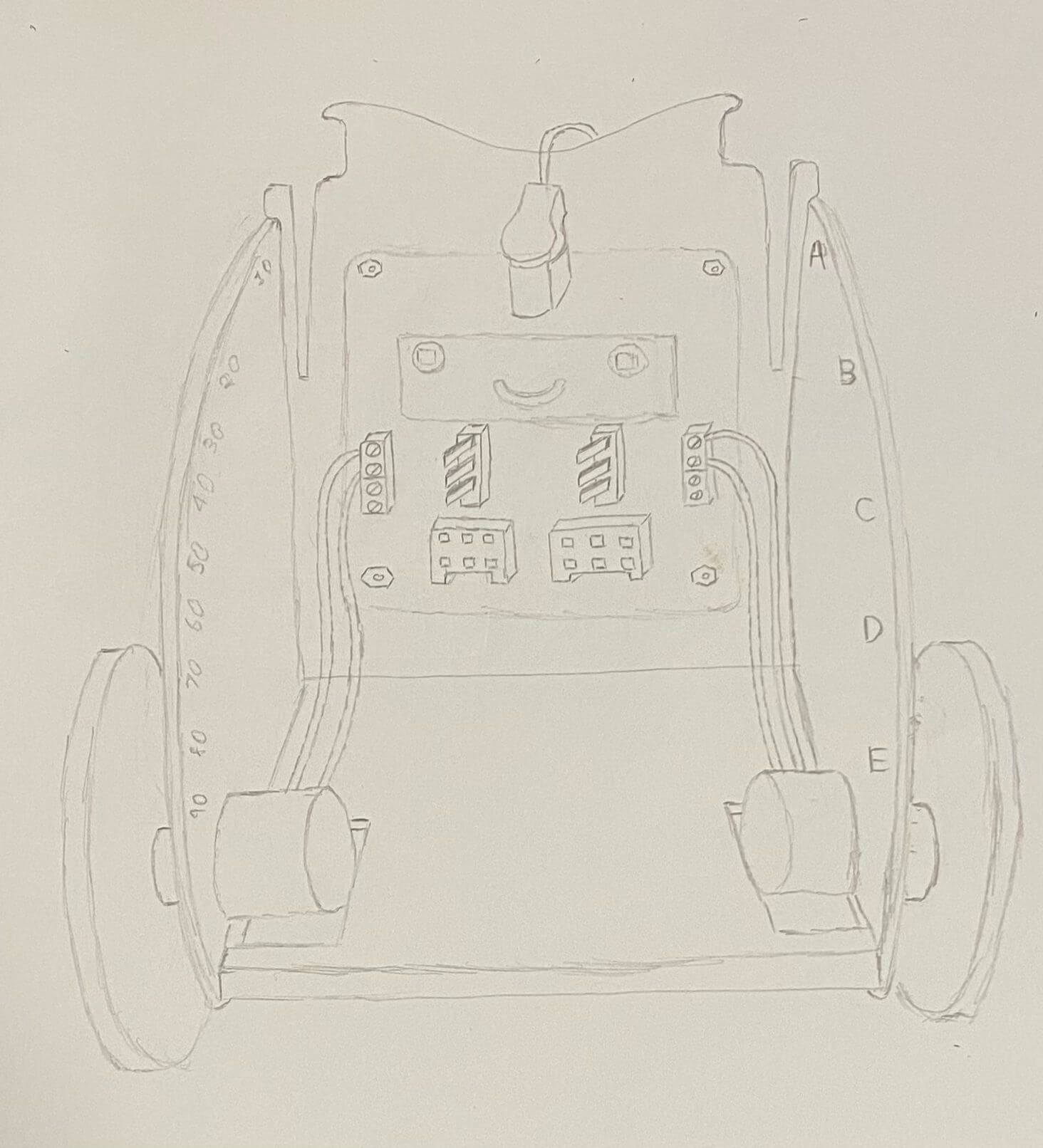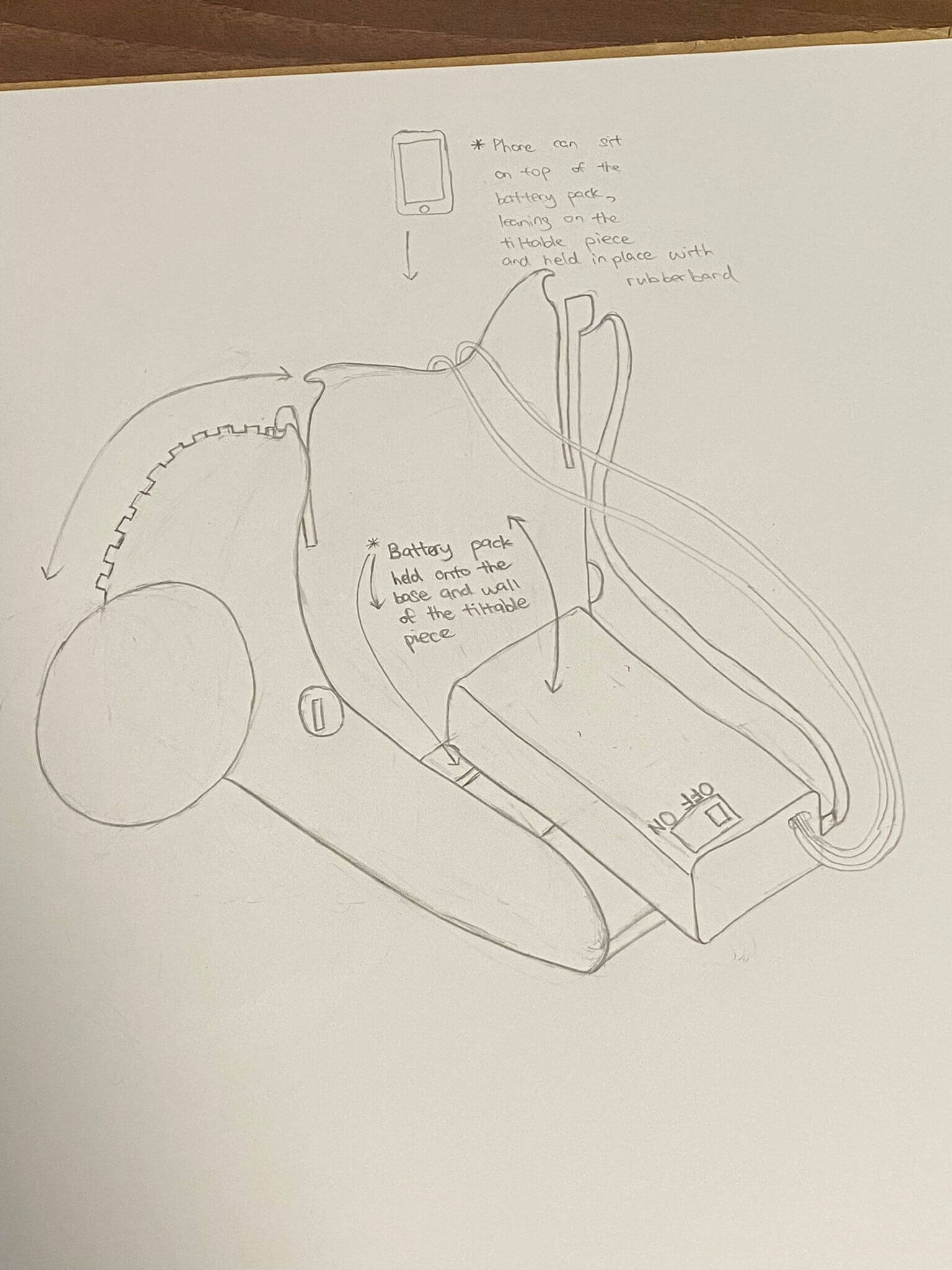1st Prototype
The 1st prototype is a modified version of the original Curio Robot.
Design Thinking
Empathize
We conducted meetings with our client and Curio designer to gain insights into the challenges and limitations they encountered while using or designing the robot.
Questions that we have asked our client here.
Curio Designer minutes meeting.
Define
After receiving feedback and conducting experiments with Curio, we discovered that the weight distribution of the product is having an impact on its speed. Additionally, we learned that users are having difficulty distinguishing between the front and back of Curio.
Ideate
We have devised a solution to address the issue of weight distribution of Curio. We took Smartibot robot for inspiration. Our idea involves using the battery pack as a base for the phone to rest on, thereby distributing the weight more evenly and providing greater stability.
Prototype (Sketches)
To facilitate rapid iteration and gather feedback from the client and designer, we have opted to create a prototype sketch of our idea. We aim to refine and improve upon the concept in an efficient manner.
Front view:
This is the front view of the car. It can be easily identify with the "face" of smartibot control board.

Back view:
This is the back view of the car. We have designed a base for the battery pack to lie on, which will support the weight of the battery. On top of the battery pack, we have placed the phone, which will be held in place by a rubber band to provide additional support and distribute the weight evenly. This configuration will provide greater stability to the car and ensure that the weight is properly balanced.

Test
After discussing the prototype with our team and client, we have identified some challenges that may make it difficult to build. Specifically, the use of wood as a material and the gear mechanism for tilting the phone stand may prove problematic. Additionally, due to the limitations of the material, the speed of the car may be affected.
Learning points
The choice of materials used in building a robot is a crucial factor that can affect both the cost and the difficulty of its construction. Additionally, the materials used can impact the robot's speed and stability. To achieve the objectives outlined in the introduction, further efforts are necessary to refine the design.